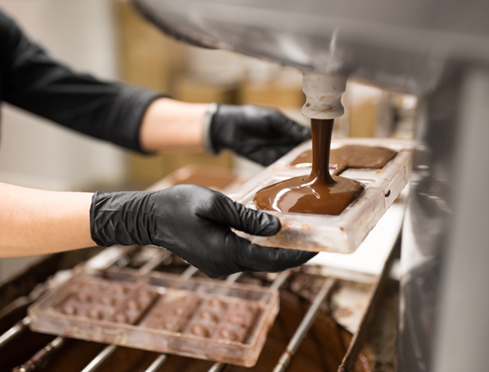In today's diligent consumer landscape, the demand for morally sourced and lasting items has actually surged. Private label food manufacturers have become pioneers in this domain, typically collaborating with contract food makers to spearhead sustainability and liable sourcing initiatives. With an undaunted dedication to environmental ethics, exclusive label brands have made it their goal to supply lasting, premium alternatives to consumers.

Private Label Food Manufacturers
Over the last few years, private label food manufacturers, additionally called very own brands or shop brand names, have seen a remarkable surge in popularity. These makers create goods sold under the logo of a store, grocer, or exclusive entity. What collections private-label items apart is their ability to supply affordable pricing without compromising on high quality.
Contract Food Manufacturers
Lots of private-label food manufacturers join forces with agreement producers to develop their line of product. Contract food producers are experts in creating food products for private tags. This strategic partnership enables exclusive label business to take advantage of the know-how, resources, as well as specialized food manufacturing centers of their partners.
Sustainability at the Core
Private label food manufacturers employ different methods to enhance sustainability within their supply networks:
Moral Sourcing:
Private label firms are progressively dedicated to sourcing components according to moral and also reasonable profession standards. This involves making sure that producers and employees of basic materials, such as coffee beans, seasonings, or cacao, receive reasonable settlement for their efforts.
Local Sourcing:
Prioritizing neighborhood sourcing of active ingredients is one more hallmark of private-label food makers. This not only reduces the carbon footprint related to transport yet also supports regional farmers as well as communities.
Organic Ingredients:
With the health food market growing, personal tags are reacting by incorporating organic components into their line of product. Organic farming methods focus on soil health and wellness while shunning artificial chemicals and also fertilizers.
Sustainable Seafood:
Private Label Food Manufacturers are persistent in making certain that the fish and shellfish they use is sustainably gathered, sticking to guidelines set by organizations like the Marine Stewardship Council, which advertises accountable angling.

Reduced Food Waste:
Exclusive label business are proactively working with minimizing food waste by implementing reliable manufacturing processes and also creating items with longer shelf lives. Some brand names are also partnering with food rescue companies to donate surplus food to those in need.
Eco-Friendly Packaging and also Campaigns
Sustainability initiatives by private-label food producers expand past sourcing active ingredients to encompass packaging and also green initiatives:
Sustainable Packaging:
Exclusive label brand names have actually welcomed environment-friendly packaging alternatives, consisting of recyclable, eco-friendly, or compostable materials. Revamping packaging to lessen excess product as well You can find out more as reduce ecological influence is a leading concern.
Waste Decrease:
To lessen wastefulness, private-label food makers maximize item dimensions, reduce excess product packaging, and explore cutting-edge product packaging services. Some brands even motivate consumers to participate in reusing programs.
Energy Performance:
Lots of personal label suppliers are buying even more energy-efficient manufacturing plants, lowering water use, as well as adopting renewable energy resources to further reduce their environmental impact.
Carbon Neutral Initiatives:
Some private brand name food producers are taking enthusiastic steps to attain carbon neutrality by countering their greenhouse gas discharges via reforestation jobs and also renewable energy debts.
Obstacles and also the Road Ahead
Despite the substantial strides made in sustainability as well as responsible sourcing, private-label food producers face obstacles. Balancing sustainability with cost-effectiveness can be a fragile act, in some cases requiring compromises on sustainable ingredients or the expedition of environmentally friendly alternatives.
Nevertheless, the future of private-label food manufacturing holds terrific pledge. As customer understanding and also demand for lasting products continue to increase, private-label brand names and also their agreement food manufacturing partners are likely to escalate their efforts. Partnership with providers and also investment in sustainable technological developments as well as openness will be pivotal in shaping a sustainable future for the market.
Often Asked Inquiries
Q1: What are private label food manufacturers?
Private label food manufacturers generate items offered under the logo design of a retail store, grocer, or exclusive entity. They supply competitively priced products without jeopardizing on top quality.
Q2: Exactly how do private label food manufacturers promote sustainability?
Private label food manufacturers advertise sustainability with ethical sourcing, neighborhood ingredient purchase, making use of organic ingredients, lasting fish and shellfish techniques, and also initiatives to reduce food waste.
Q3: What environment-friendly packaging options do exclusive label brands make use of?
Private label brand names embrace eco-friendly product packaging choices such as recyclable, naturally degradable, or compostable materials. They also revamp product packaging to reduce excess product and also reduce ecological influence.
Q4: What tests do private label food manufacturers encounter in sustainability initiatives?
Balancing sustainability with cost-effectiveness is a significant difficulty for private label food manufacturers. This may need compromises on sustainable ingredients or the exploration of eco-friendly options.
Verdict
Private label food manufacturers go to the leading edge of the sustainability as well as responsible sourcing activity within the food market. Their dedication to moral sourcing, local procurement, natural ingredients, and lasting practices, along with their dedication to eco-friendly product packaging as well as waste reduction efforts, show their resolution to satisfy the demands these days's eco-conscious customers.
In spite of the difficulties they deal with, private label food manufacturers are poised for an appealing future. With customers progressively prioritizing sustainability, the industry is likely to witness even better collaboration with suppliers, financial investment in lasting technologies, and also a commitment to transparency. As we move forward, private label food manufacturers will certainly continue to play a vital duty fit a more lasting and also ethical food landscape for all.